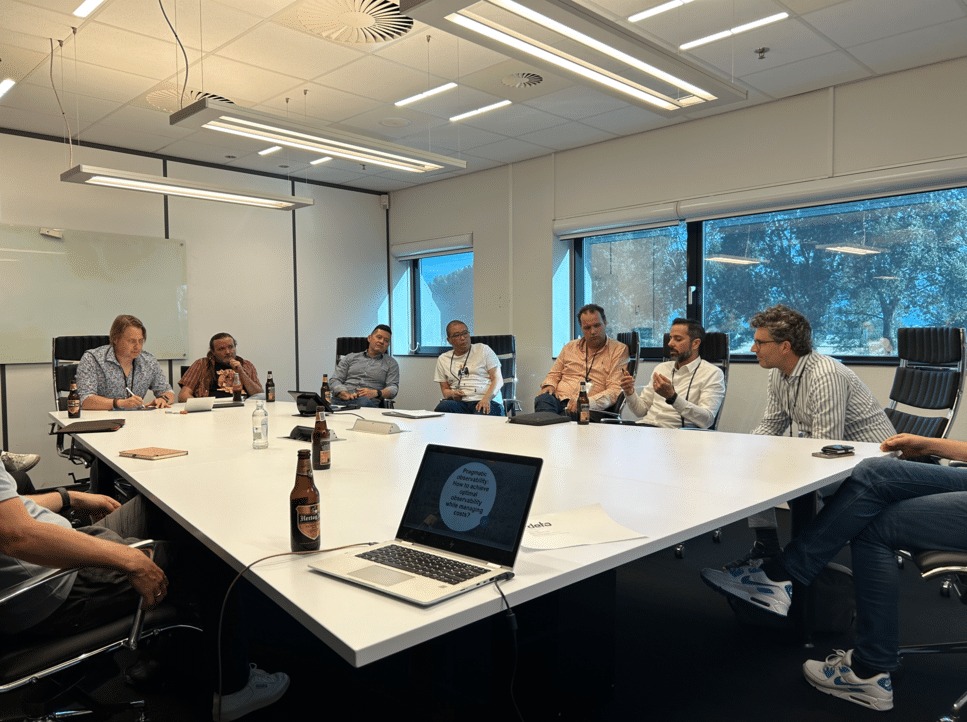In Third Republic’s Salesforce Q&A Series, we speak to industry leaders about what changes they have seen in the Salesforce universe, where they think it is heading, and what this means for those working in the ecosystem today.
We caught up with David Atkins, Salesforce Project Manager at the online luxury fashion retail platform, Farfetch. He tells us about how he got to where he is today, the challenges of CRM Project Management and offers his advice to those starting out in the industry.
Third Republic (TR): Could you explain a bit about your career journey and how you got to where you are today?
David Atkins (DA): I’ve been in CRM for about 25 years. I started back in the days of Siebel when CRM was essentially part of contact centres. It was introduced as a means of recording and linking customer information.
I have moved around to different companies and areas, from telecom Italia and management in Germany to working in Wisconsin. I’ve travelled all over the world working on CRM projects – it’s been quite a journey.
I have also spent a lot of my time working with local governments. Implementing CRM systems in local governments is quite important. It helps to keep contact information updated, as well as maintaining a log of issues and complaints etc. So, I worked for a number of years with a company who specialised in CRM just for local governments.
Then I started working with Salesforce about 8 years ago, working on a number of projects with both Salesforce and Force.com. So, I’ve been working on some of the applications that companies have built on top of Salesforce.
Now I’m working for Farfetch, where I am Project Manager for their Salesforce implementation and have built out their Salesforce team. It has been quite a large implementation.
TR: What are some of the challenges that you come up against when implementing CRM systems?
DA: I’d say for any CRM implementation, the challenges are relatively similar. For example, from the application point of view, adoption is always likely to be an issue. Also change management, has changed, meaning you have to be much more engaged.
You probably spend a lot more time today, talking at user level and demonstrating the platform. It’s important to communicate with users, whilst also keeping corporate sponsors happy. Salesforce and other CRM systems can be expensive to implement, so it’s important to ensure that sponsors can see a return on investment. Back when I first started out, companies implemented CRM systems because it was a bit of a business buzzword, but now firms want to know what they’re getting out of implementing these systems and processes.
Another challenge is that, Salesforce, as well as other CRM companies are great at marketing everything their products have to offer. Which means the level of expectation form users is exceptionally high. Therefore, you have to be prepared to manage the expectations of your clients, which can be a challenge in itself.
TR: What advice would you give to those starting out their career as a Salesforce Project Manager?
DA: Make sure you’re fully aligned with the project sponsors. Ensure that you personally understand what the firm’s vision is – especially in the short and medium term. Ask yourself and the business, what are you/am I expecting to get out of it?
Over the years I’ve seen some amazing figures quoted about how efficiency gains have been measured, and you have to be brave enough to look at those figures and challenge them. In my experience, almost every time I am presented with these kind of figures, they are overestimated. So, you have to be prepared to challenge them with realistic expectations.
The great thing about CRM, is that if it’s properly implemented and planned as a short to medium – 2 to 5 year plan, you can make massive efficiency gains; but you definitely won’t see gains on day one. It’s important to understand what period of time your sponsors are expecting efficiency gains, and you can work with them on this.
It’s also crucial to work with users and get them to for user group. This way, they can discuss issues and present their challenges to you as a group, rather than having multiple questions about the same issue.
Ultimately, it’s about managing expectations from two levels, maintaining communication and keeping everyone happy throughout the process.
TR: Could you explain a bit about work you are currently doing with Salesforce at Farfetch?
DA: Farfetch is the leading global technology platform for the luxury fashion industry. We operate the only truly global luxury digital marketplace at scale, where lovers of fashion anywhere in the world can shop for an unrivalled range of incredible products from the world’s best brands and boutiques.
Due to the type of products we sell and service we offer, we take customer care incredibly seriously. Based on this we started implementing Service Cloud in February. This is to be used by the customer services team across the globe. The purpose of this is to improve the processes and efficiency of dealing with customer queries.
We are also using Sales Cloud and Marketing Cloud for our private client division. This has been a very successful part of the implementation and is something we are currently working on Phase 2 of to boost some of the capabilities of the Salesforce system.
TR: In your opinion, what are the benefits of businesses implementing a Salesforce CRM system?
DA: Personally, I think the main benefit is customer intelligence – data is king! If a CRM system is properly designed and implemented, then the understanding of customer behaviours, needs and requirements can be effectively analysed.
Obviously, all this has to be in line with GDPR regulations; it’s really important that we ensure all the data held by a company is in line with regulations, which I spend a lot of time working on.
TR: How important do you think it is for businesses to implement Salesforce in today’s digital age?
DA: The cloud applications have helped CRM become a much more useful project than it was previously. The way CRM is developing is quite steady now, there doesn’t seem to be any massive changes impending, but more of a slow evolution. Which allows companies to receive and process information about the systems, allowing them to use the data effectively.
Something that always used to amaze me, was the amount of information and data firms would have, but they had but never used it. They had all the data they needed to help boost their sales or their service offerings, but the data just sat there. This was largely due to people not understanding how to use the data.
TR: What emerging Salesforce or CRM trends are you most excited about, and why?
DA: Artificial Intelligence is something that is being used more and more, especially within the Salesforce world, with Einstein. AI is something that will provide a huge boost to companies and is certainly going to become used and implemented more frequently in the coming years.
TR: Do you have any predictions for the future of Salesforce and where the ecosystem is headed?
DA: Salesforce is in an incredibly strong position, it’s a great marketing machine. From the perspective of professionals in the industry, I think they will continue to be in very high demand. When I came on board at Farfetch, people wanted to sit down and talk with me about Salesforce in general, as well as the potential career avenues. It’s definitely only going to keep growing!
As mentioned above, AI is definitely going to be the next big thing in the Salesforce ecosystem, with platforms like Einstein Analytics.
TR: Finally, do you have any further comments or advice for looking to start their career as a Project Manager?
DA: You need to know your product well, much more than some time ago. With the way products are marketed, the frequent updates to the platform, and the additional requirements that can be added – if you don’t know and understand your product, it can be very difficult to advise.
So, my additional advice is to ensure you take the time understand the product you’re using – it will make your life a lot easier as a Project Manager.




